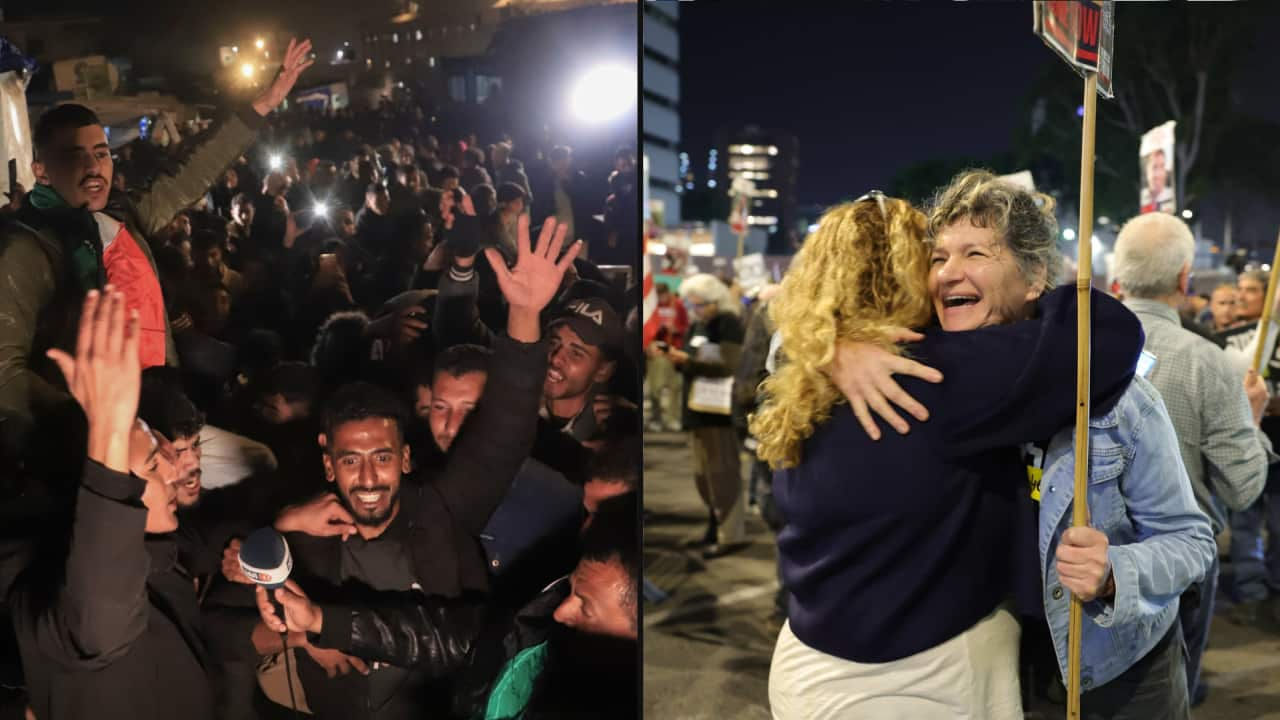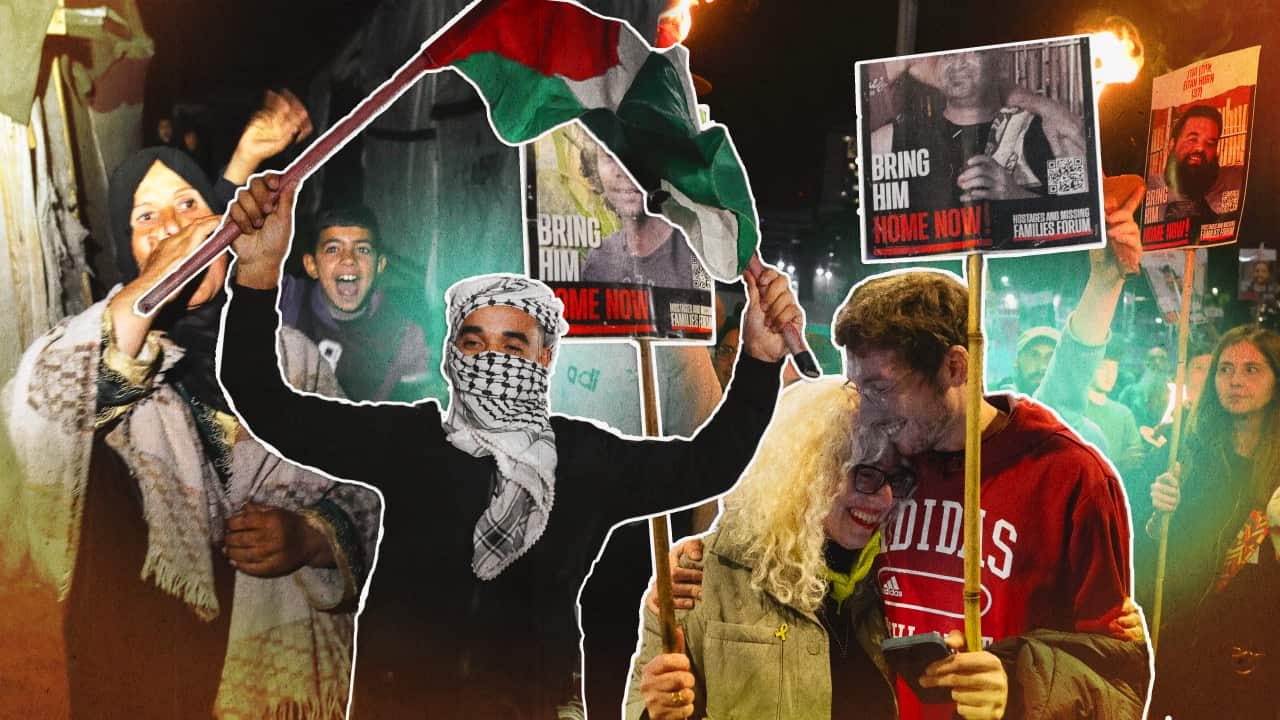Applause and cheers filled a Tel Aviv square on Saturday as Gaza militants released four Israeli hostages, followed by celebrations in the occupied West Bank when Israel freed 200 Palestinian prisoners in exchange.
While Israel and militant group Hamas completed their second hostage-prisoner swap under a ceasefire deal aimed at paving the way for a permanent end to their war, a last-minute dispute blocked the expected return of hundreds of thousands of displaced Palestinians to the Gaza Strip's devastated north.
The four hostages released, all women soldiers, reached a hospital on the outskirts of Israel's commercial hub Tel Aviv after more than 15 months of captivity in Gaza.
Israel's prison service confirmed that 200 Palestinian prisoners were freed in exchange, with some of them subsequently deported.

Israeli hostages (from left to right) Naama Levy, Liri Albag, Daniella Gilboa and Karina Ariev stand on a stage before being delivered to the representative of the International Committee of the Red Cross by Hamas militants. Source: AAP / Mahmoud Zaki/EPA
After their handover to the International Committee of the Red Cross, the military said the women were brought to Israel and "reunited with their parents".

(Left-right) Danielle Gilboa, Naama Levy, Karina Ariev and Liri Albag were released on Saturday. Source: Supplied
In Ramallah, seat of the Palestinian Authority in the West Bank, crowds of Palestinians erupted in joy as dozens of freed prisoners arrived on buses from jail.

Huge crowds greeted Palestinian prisoners after being released from Israeli prisons following a ceasefire agreement with Israel, in the West Bank city of Ramallah. Source: AP / Nasser Nasser
"My situation was heartbreaking, truly heartbreaking. We pray to God to free all our brothers we've left behind," said Shallalta, still wearing his grey prison tracksuit.
'A very happy moment'
The freed Israeli hostages were taken by military helicopter to the Rabin Medical Centre, whose deputy director Lena Feldman Koren said the four were in a "stable" condition even though "the prolonged captivity in harsh conditions is evident".
Footage released by the military showed the families overcome with joy at being back together.
Albag and her parents were seen screaming with happiness and laughing while her father lifted her off the ground in a bear hug.
Israeli Prime Minister Benjamin Netanyahu spoke with Albag's parents after her release, telling them that "this is a very happy moment that we have been waiting for a long time", according to a statement from his office.
State-linked Egyptian media said 70 freed Palestinian prisoners "deported" by Israel had arrived in Egypt by bus. They were to travel on into exile in third countries.
Those expelled have been serving sentences for deadly attacks on Israelis, according to a list made public by Israeli authorities.
In the south Gaza city of Rafah, a crowd gathered to welcome 14 prisoners released by Israel and sent to the territory.
The hostage-prisoner exchange is part of a .
since then, but the United Nations says "the humanitarian situation remains dire".
Israel announced on Saturday that it would block the return of Palestinians displaced from northern Gaza until civilian woman hostage Arbel Yehud is released.
Netanyahu's office said she "was supposed to be released today", but a Hamas source told AFP Yehud will be "released as part of the third swap set for next Saturday".
Palestinian police prevented hundreds of displaced people from reaching the Israeli-controlled passage to the north, where Israeli tanks and armoured vehicles were blocking the road.
The ceasefire agreement is planned to be implemented in three phases. The last two have not yet been finalised.
The deal's second phase will include negotiations for a lasting end to the war, but analysts have warned it risks collapsing because of the deal's multi-phase nature and deep distrust between Israel and Hamas.
During the first, six-week phase, 33 hostages should be freed in staggered releases in exchange for around 1,900 Palestinians held in Israeli jails.
Israel bombarded Gaza for 15 months following Hamas' October 7 attack in which more than 1,200 people, including an estimated 30 children, were killed and over 200 hostages taken, according to the Israeli government. More than 46,000 people have been killed in Gaza since October 7, according to the health ministry in Gaza.
The in the long-standing conflict between Israel and Hamas.



